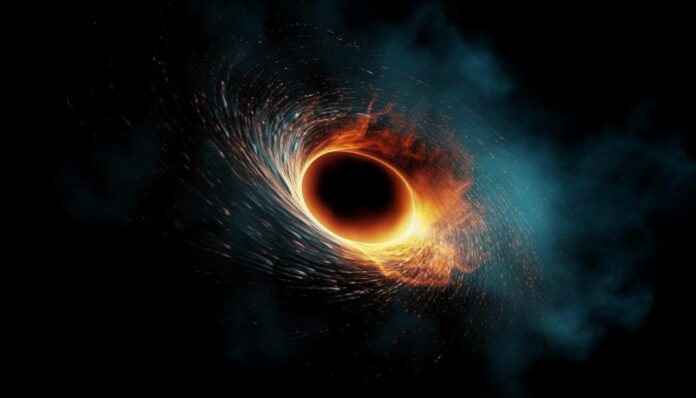
22 May, 2024 by Pranjal Mehar
Collected at : https://www.techexplorist.com/plunging-regions-around-black-holes-space/84066/
Contrary to Newton’s theory of gravity, Einstein’s theory posits that particles cannot safely follow circular orbits when near a black hole. Instead, they ‘plunge’ towards the black hole at nearly the speed of light. This phenomenon, observed for the first time in detail through X-ray data in the Oxford study, provides a deeper understanding of the force exerted by black holes.
This study gives the first observational proof that a “plunging region” exists around black holes. Moreover, this region exerts some of the most vital gravitational forces yet identified in the galaxy.
The latest findings are part of a comprehensive study by Oxford University Physics astrophysicists into the mysteries surrounding black holes. This study focused on smaller black holes near Earth. It used X-ray data from NASA’s space-based Nuclear Spectroscopic Telescope Array (NuSTAR) and Neutron Star Interior Composition Explorer (NICER) telescopes. As part of a European collaboration, a second Oxford team is poised to potentially capture the first footage of larger, more distant black holes later this year.
Dr. Andrew Mummery of Oxford University Physics, who led the study, said, “This is the first look at how plasma, peeled from the outer edge of a star, undergoes its final fall into the center of a black hole, a process happening in a system around ten thousand light years away. What is really exciting is that there are many black holes in the galaxy, and we now have a powerful new technique for using them to study the strongest known gravitational fields.”
“Einstein’s theory predicted that this final plunge would exist, but this is the first time we have been able to demonstrate it happening. Think of it like a river turning into a waterfall – hitherto, we have been looking at the river. This is our first sight of the waterfall.”
‘We believe this represents an exciting new development in the study of black holes, allowing us to investigate this final area around them. Only then can we fully understand the gravitational force. This final plunge of plasma happens at the very edge of a black hole and shows matter responding to gravity in its strongest possible form.”
Journal Reference:
- Andrew Mummery, Adam Ingram, Shane Davis, Andrew Fabian. Continuum emission from within the plunging region of black hole discs. Monthly Notices of the Astronomical Society. DOI: 10.1093/mnras/stae1160

Leave a Reply